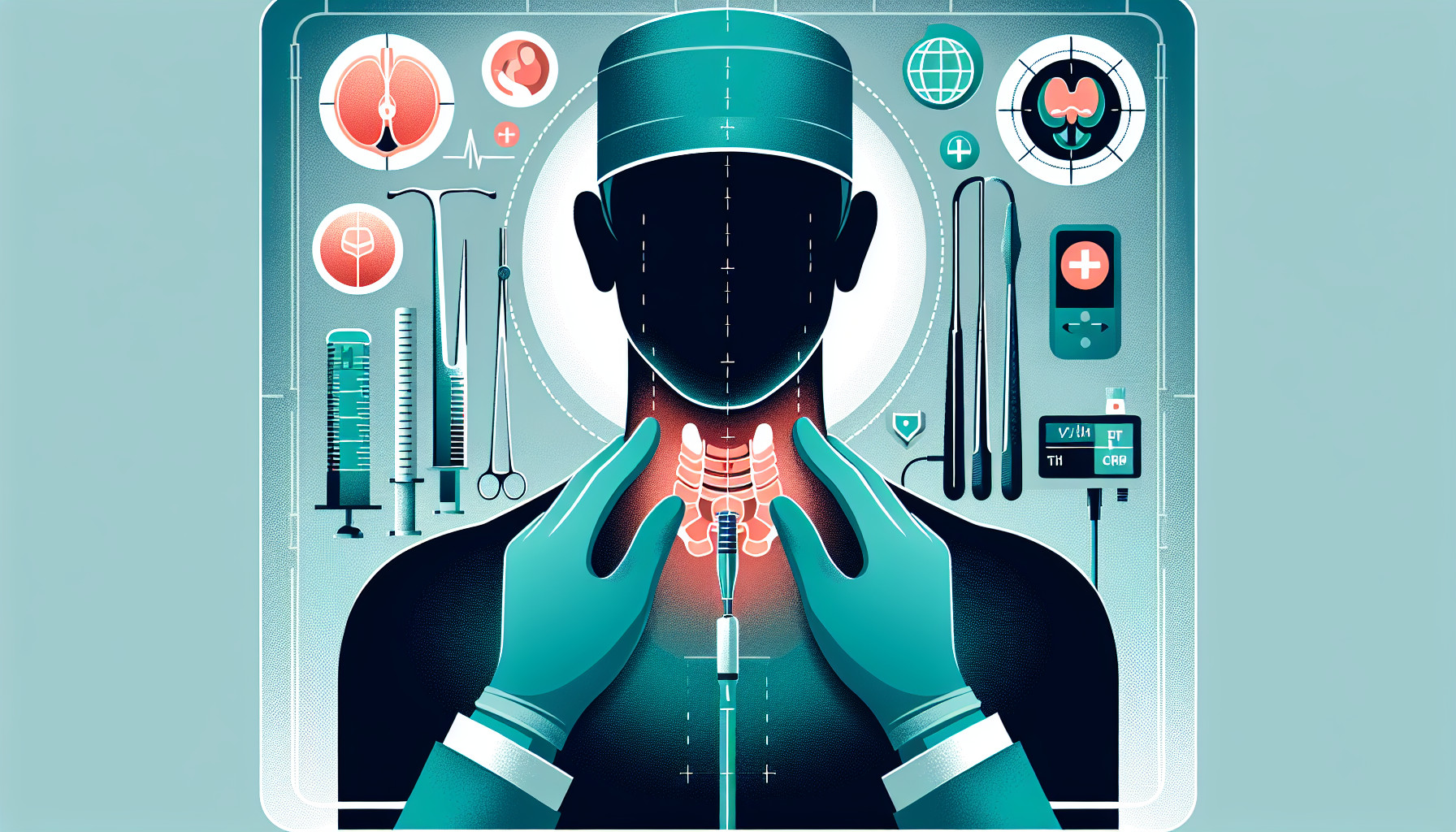Our Summary
This research paper discusses the use of parathyroidectomy (surgery to remove the parathyroid glands) in patients who are on dialysis. Despite advances in medical treatments, sometimes this surgery is still necessary for patients with secondary hyperparathyroidism (a condition where the parathyroid glands produce too much hormone). The paper aims to answer questions about who should have the surgery, what type of surgery is best, and what the current guidelines are. It also discusses the short- and long-term outcomes of the surgery and weighs up the advantages and disadvantages. The authors conclude that decisions about parathyroidectomy in dialysis patients should be made on a case-by-case basis.
FAQs
- What is the purpose of a parathyroidectomy in dialysis patients?
- What are the current guidelines for parathyroidectomy and what surgical techniques are used?
- What are the potential short- and long-term outcomes of parathyroidectomy in dialysis patients?
Doctor’s Tip
One helpful tip a doctor might tell a patient about parathyroidectomy is to carefully follow post-operative instructions, such as taking prescribed medications, attending follow-up appointments, and maintaining a healthy lifestyle to support recovery and prevent complications. It is also important to communicate any concerns or changes in symptoms to your healthcare provider.
Suitable For
Parathyroidectomy is typically recommended for patients with end-stage renal disease who have secondary hyperparathyroidism that is not responding to medical management. This may include patients with severe hypercalcemia, hyperphosphatemia, elevated parathyroid hormone levels, persistent bone pain, fractures, and/or calciphylaxis. Patients who are experiencing symptoms such as fatigue, weakness, and cognitive impairment may also be candidates for parathyroidectomy.
Additionally, patients who have failed to achieve target levels of calcium, phosphorus, and parathyroid hormone with medical therapy, or who have developed resistance to medications such as vitamin D analogs and calcimimetics, may be recommended for parathyroidectomy.
It is important for patients to undergo thorough evaluation and consultation with a multidisciplinary team, including nephrologists, endocrinologists, and surgeons, to determine if parathyroidectomy is the most appropriate treatment option for their individual case.
Timeline
Before Parathyroidectomy:
- Patients may experience symptoms of secondary hyperparathyroidism, such as bone pain, muscle weakness, fatigue, and cognitive impairment.
- Blood tests may show elevated levels of parathyroid hormone (PTH), calcium, and phosphorus.
- Imaging studies, such as ultrasound or sestamibi scan, may be performed to locate the abnormal parathyroid gland.
- Patients may undergo a preoperative evaluation to assess their overall health and determine their suitability for surgery.
After Parathyroidectomy:
- Patients undergo the surgical procedure to remove the abnormal parathyroid gland(s).
- Recovery time varies, but patients may experience some pain and swelling at the surgical site.
- Blood tests are performed to monitor PTH, calcium, and phosphorus levels post-surgery.
- Patients may experience improvement in symptoms such as bone pain, muscle weakness, and fatigue.
- Long-term follow-up is important to monitor for recurrence of hyperparathyroidism and potential complications of surgery.
What to Ask Your Doctor
- What are the indications for parathyroidectomy in my specific case?
- What are the potential risks and complications associated with parathyroidectomy?
- How will the surgery be performed and what is the expected recovery time?
- What are the potential long-term benefits of undergoing a parathyroidectomy?
- Will I need any follow-up care or medication after the surgery?
- How will my kidney function be affected by the procedure?
- Are there any alternative treatments or therapies that I should consider before deciding on a parathyroidectomy?
- What is the success rate of parathyroidectomy in patients with similar conditions to mine?
- How often will I need to have follow-up appointments to monitor my condition after the surgery?
- Are there any lifestyle changes or dietary restrictions that I should adhere to post-surgery?
Reference
Authors: El-Husseini A, Wang K, Edon AA, Sawaya BP. Journal: Semin Dial. 2017 Sep;30(5):385-389. doi: 10.1111/sdi.12632. Epub 2017 Jul 5. PMID: 28677243
